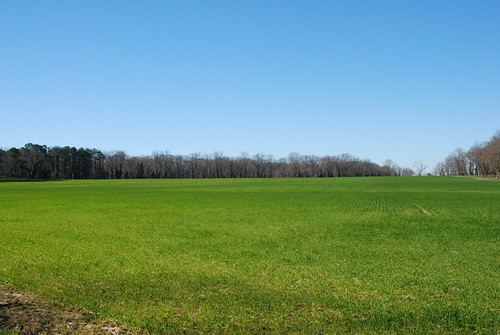Kent County Farm Protected Along Scenic Byway
679-Acre Easement Preserves Agricultural Land, Scenic Views, Wildlife Habitat
 The Maryland Environmental Trust and Eastern Shore Land Conservancy have permanently protected 679 acres of farmland and forestland along the Chesapeake Country National Scenic Byway.
The Maryland Environmental Trust and Eastern Shore Land Conservancy have permanently protected 679 acres of farmland and forestland along the Chesapeake Country National Scenic Byway.
Oldfield Point Farms granted a conservation easement on the property forever protecting the scenic views, important habitat and prime agricultural land. The property provides access from the Sassafras River creating a waypoint from those traveling on the river.
“The easement is the culmination of several years’ effort to conserve this property,” Maryland Environmental Trust Director Bill Leahy said. “This success, working with our federal, state and local partners, is a great example of our leadership role in acquiring a conservation easement involving multiple parties and funding sources.”
The family farm near Galena in Kent County is an integral part of the area’s agricultural setting and provides travelers with scenic vistas of agricultural fields and forestland. It consists of about 368 acres of farmland; 300 acres of riparian forest and scenic frontage along the Sassafras River and Dyer Creek, as well as the byway, which is Route 213. A great blue heron rookery and bald eagle nest are also located on the property.
The easement was purchased using federal transportation funds set aside for protection along the byway and state funds from Program Open Space. Other important partners included Kent County and Maryland Department of Transportation State Highway Administration.
“Since 2007, we completed seven easements along the byway protecting more than 2,500 acres of scenic lands,” Eastern Shore Land Conservancy Conservation Easement Program Manager Jared Parks said. “In addition to protecting lands on the scenic byway, these efforts have also conserved important wildlife habitat and prime agricultural lands. We are very pleased to help protect this important property, further securing the scenic, rural, ecological and agricultural character of the landscape.”
